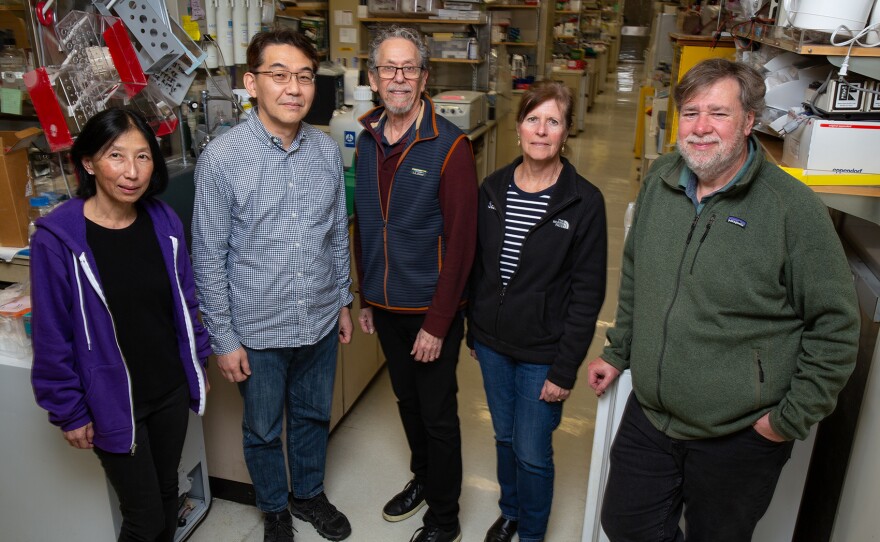Sperm production relies on a network of genes and proteins that line up and interact in a certain way. But what if you blocked or inhibited one of the elements on that assembly line?
That’s what scientists at San Diego’s Salk Institute have done, using an inhibitor that targets a crucial genetic coupling. They said the treatment prevents sperm production and has no effect on libido.
If mice go off the pill for a couple of months, fertility returns.

Salk professor Ronald Evans, director of their Gene Expression Lab, said to do this they had to fully understand the genetic network that produces sperm.
”We hit this pathway just at the right spot with a very simple molecule that is safe,” he said. “So I think that one of the most important parts is uncovering the nature of the network and finding that the network is open to therapeutic intervention.”
The driver of sperm production in the testicles is retinoic acid, and that binds with receptors in sperm cells that then bind with a protein called SMRT. The dance is complete when the protein attracts and couples with an element called HDAC.
Salk scientists targeted HDAC with inhibitors, tossing a wrench in the machinery and preventing the creation of mature sperm.
“I was pretty shocked in the beginning when we got the first results, but they were really highly reproducible and dealt with every issue we could think of,” he said.”
For men, birth control has been practically limited to condoms or vasectomies. Evans said the creation of a birth control pill for women created a new era, socially and economically. And a male pill could achieve something like that.
“Where male contraception now can be explored, developed and I think become a major and relatively inexpensive way,” he said. “And it is totally reversible.”
Evans said work remains. Experiments will move from mice to larger mammals, and ultimately to clinical trials for humans.






